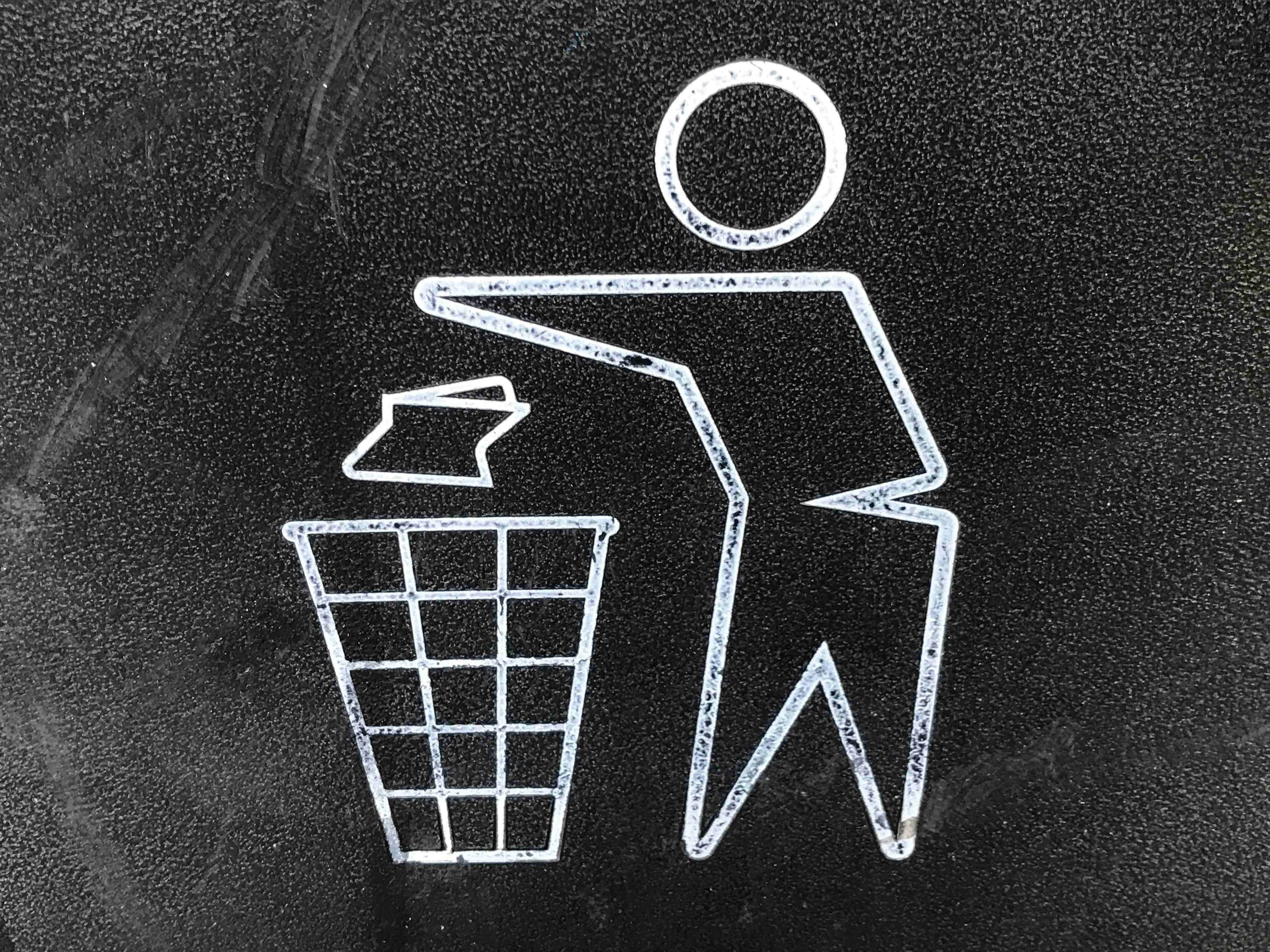
Littering is a global issue with serious environmental and economic impacts. But, what drives people to act responsibly?
Sonny Rosenthal from Singapore Management University and Pengya Ai, a PhD student from Nanyang Technological University are interested in how social norms shape pro-environmental behaviour. Their research reveals how descriptive norms (what people do) and injunctive norms (what people should do) interact with personal responsibility, challenging assumptions about collective action and the bystander effect. The findings offer a new framework for understanding how individuals respond to social cues, and how policy can use these vital insights.
Read the original research: doi.org/10.1038/s41598-024-60047-0
Transcript:
Hello and welcome to Research Pod! Thank you for listening and joining us today.
In this episode, we look at a study on how social norms influence people’s environmental behaviour. The research, carried out by Pengya Ai, former PhD student of Dr Rosenthal from the Singapore Management University, focuses on the global problem of littering. It’s estimated that every year, five trillion cigarette butts are dropped on the ground, and eight million tonnes of plastic waste are thrown into our oceans. In the same period, it’s thought that around 50 billion pieces of waste such as food wrappers are discarded along roadways and waterways in the United States.
People are usually to blame, but they also suffer its effects.
For example, litter can blight neighbourhoods and harm physical and mental health. It’s damaging to the environment and endangers wildlife by polluting water courses and disrupting eco-systems. The harmful effects are also long-lasting, as litter releases toxins as the matter breaks down over time.
The associated costs are eye-watering. The United States spends more than 11.5 billion dollars a year on litter clearing, and the United Kingdom spends 1 billion pounds on street-cleaning. Local economies are also affected, with extreme beach littering thought to reduce tourism income by up to 39%.
It’s not surprising then, that how to prevent littering is a hot topic for research. This latest study is based on a survey of residents of Singapore. Singapore is one of the most litter-free societies in the world, where dropping litter results in heavy fines. Even so, the authorities still issue 20,000 littering tickets every year.
So what influences people’s littering behaviour? Many experts think social norms provide the answer.
Sociologists and psychologists hold that, as social beings, we’re governed by the rules, standards, expectations and behaviours of the group or groups to which we belong. The thoughts and actions that determine our behaviour are therefore influenced by the thoughts and actions of others.
According to social norm theory, we usually behave like people typically behave in a similar situation. There are two concepts associated with this. On the one hand we might obey ‘descriptive norms’, which suggests that we’ve read the situation correctly and know what people usually do in the circumstances. Alternatively, we might obey ‘injunctive norms’, which suggest that we know what society thinks we ought to do.
People therefore conform to descriptive norms for accurate decision-making, and to injunctive norms for other people’s approval. Both of these are social norms – external factors that regulate our behaviour.
But we also have our own expectations of how we should think and act – personal norms. These help to explain altruism, including why some people adopt pro-environmental behaviour.
Personal norms are fundamental to understanding the ‘Norm Activation Model’ developed by the social psychologist Shalom Schwartz in the 1970s. According to this, as people become aware of the consequences of their actions, they understand their role in bringing them about and accept responsibility for them. This so-called ‘ascription of responsibility’ leads people to adopt personal norms of what is right or wrong and if necessary change their behaviour.
Of course it’s also possible that people refuse to accept they’ve helped to create a problem, or that they believe fixing it is beyond their control. This kind of behaviour is known as ‘responsibility denial’.
To date, the literature on pro-environmental behaviour has considered both social norm theory and the Norm Activation Model. This latest study focuses on an area that has so far received less attention – how social norms affect ascription of responsibility.
Previous studies suggest that the stronger the social norms are, the more people will display pro-environmental behaviour. In other words, people tend to follow what the majority of people do, or what others think they should do.
But the researchers suspect that the reality is more complex. For example, descriptive norms may lead to a bystander effect such that people deny personal responsibility and think that, if others are already taking action, they don’t have to.
In addition, weak descriptive norms – for example, where few people engage in pro-environmental behaviour – may actually increase others’ engagement. This is because it ignites their sense of responsibility and signals the need for action.
Last but not least, strong injunctive norms – that’s when society places high value on obedience to its conventions, including pro-environmental behaviour – may stop weak descriptive norms from discouraging people’s sense of individual responsibility.
To test these ideas, Pengya carried out secondary analysis of data that Dr Rosenthal gathered for a survey of 1400 Singapore residents in 2018.
Participants were questioned about their behaviour in relation to social issues associated with litter. Asked to respond on a five-point scale from ‘strongly disagree’ to ‘strongly agree’, statements included such things as: ‘Most people in my community avoid littering’; ‘It’s up to individuals to keep the environment clean’; and ‘I have a personal responsibility not to litter’.
Also using a five-point scale from ‘definitely no’ to ‘definitely yes’, respondents then had to say how they would react to various littering scenarios. One scenario, for example, was whether they would pick up a piece of litter they dropped accidentally, if no one saw them drop it. Another was whether they would pick up a receipt they’d accidentally dropped onto the floor and not in a litter bin, if other litter was already scattered around.
The survey results were analysed using a technique known as structural equation modelling. This technique is especially useful for looking at subtle differences in data, including the relationship between participants’ answers to different questions.
The latest results reveal how social and personal norms help to shape pro-environmental behaviour. In particular, they confirm the relationships between descriptive and injunctive norms, and the ascription of responsibility in littering prevention.
As predicted, descriptive norms were negatively related, and injunctive norms were positively related, to ascription of responsibility. That is to say, when individuals have a sense of what should be done, they’re more likely to accept personal responsibility and take action. What’s more, their sense of what society thinks they ought to do is more powerful in determining their behaviour than observing what others actually do.
Negative linkages between descriptive norms and ascription of responsibility confirm researchers’ assumptions, as we said earlier, that some people think that if others are already taking action, they are absolved from similar responsibility. This is an important new finding, because other studies have suggested that people internalise social norms and are positively guided by the actions of other people. The results confirm that when the descriptive norm is for people to do nothing, this can positively inspire others to take action because they want to make a difference.
The results also show that norms interact significantly. For example, strong injunctive norms may reduce the negative impact of descriptive norms on the ascription of responsibility. To put it another way, when individuals have a strong moral sense of what should be done, it reduces the weaker link between what they see other people doing and accepting personal responsibility for pro-environmental action. This finding contrasts with other studies that suggest that descriptive norms have a positive effect on pro-environmental behaviour.
The linkages between norms found in the latest study form the core of the norm-regulated responsibility model. This novel explanatory framework links social norms with personal norms, offering new insights and a more nuanced and comprehensive understanding of how social norms influence pro-environmental behaviour.
Pengya’s secondary analysis of Dr Rosenthal’s data provides practical insights on how normative messages can be used in environmental communication and public policy. For example, policy-makers and environmentalists may consider emphasising injunctive norms in order to mitigate the potential negative effects that stem from descriptive norms.
The research team acknowledges that the study has limitations, but these present opportunities for future research. For example, the research was based on secondary analysis of a pre-existing survey, so some measurements were not ideal. The original wording of the measures tested could also have affected responses.
In addition, the research focused on perceived descriptive norms and injunctive norms, yet other types of social norms would be worth investigation, as would cultural and national contexts other than Singapore. Last but not least, it’s possible that social desirability bias came into play in the current survey and the participants over-reported their littering prevention habits.
Despite these limitations, the study has broken new ground and demonstrated that it’s time to rethink what motivates people’s pro-environmental behaviour.
That’s all for this episode – thanks for listening. Links to the original research can be found in the show notes for this episode. And don’t forget to stay subscribed to Research Pod for more of the latest science!
See you again soon. Also published on: https://researchpod.org/business/social-norms-psychology-litter-prevention
Podcast is also available on Spotify, Apple iTunes, Google Podcasts, and many more (please use search term “ResearchPod”).
See More News
Want to see more of SMU Research?
Sign up for Research@SMU e-newslettter to know more about our research and research-related events!
If you would like to remove yourself from all our mailing list, please visit https://eservices.smu.edu.sg/internet/DNC/Default.aspx

